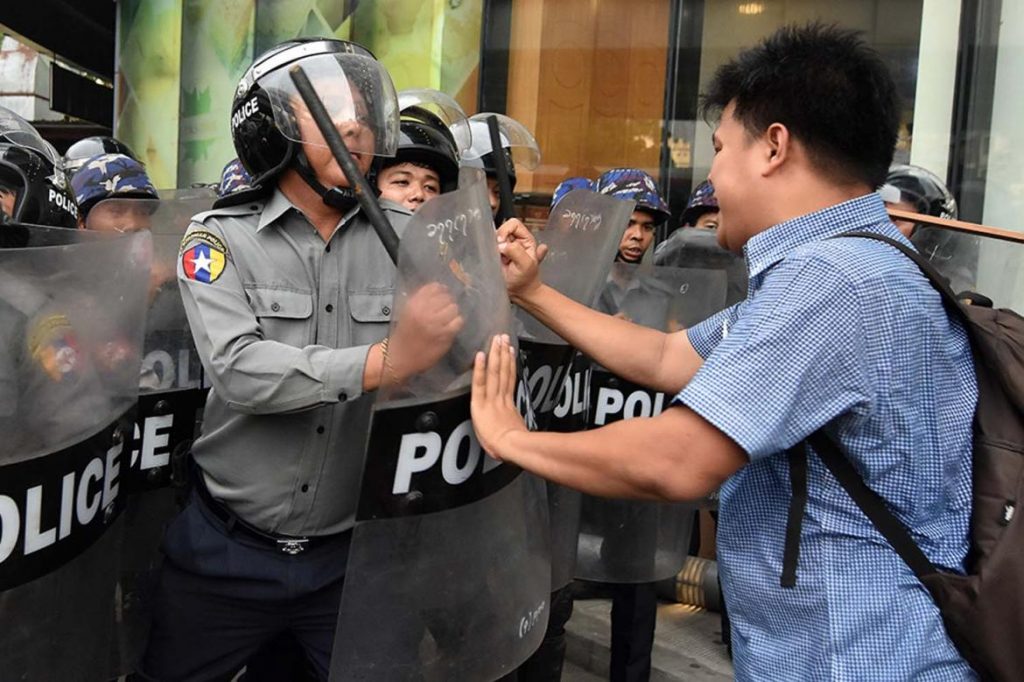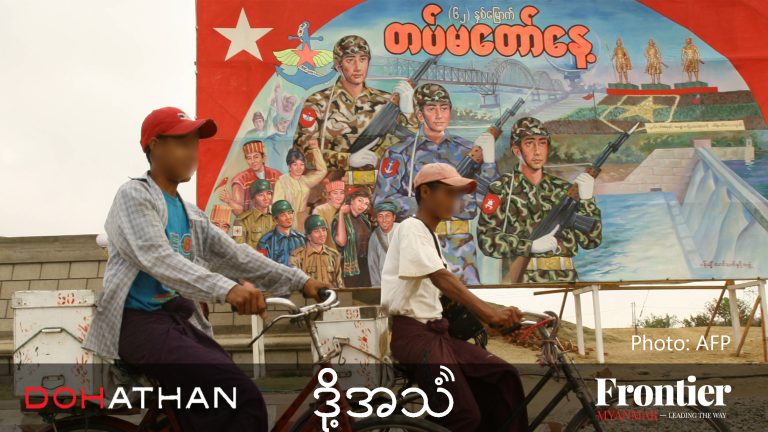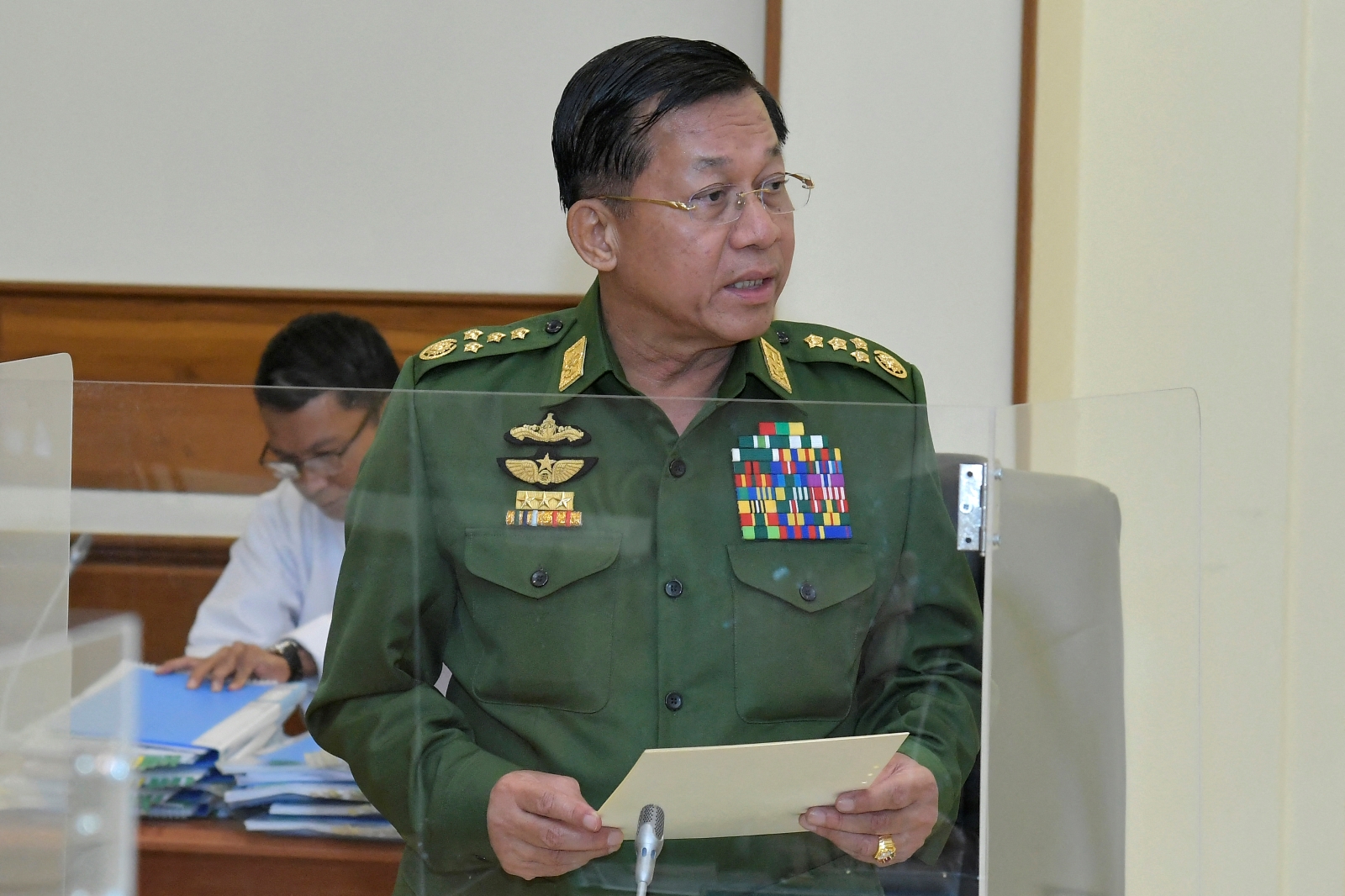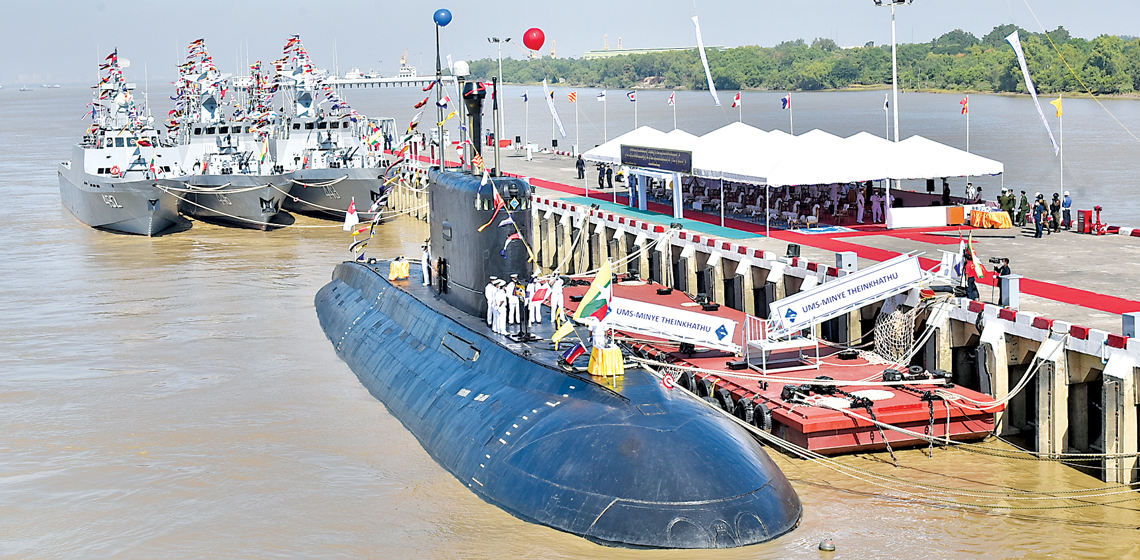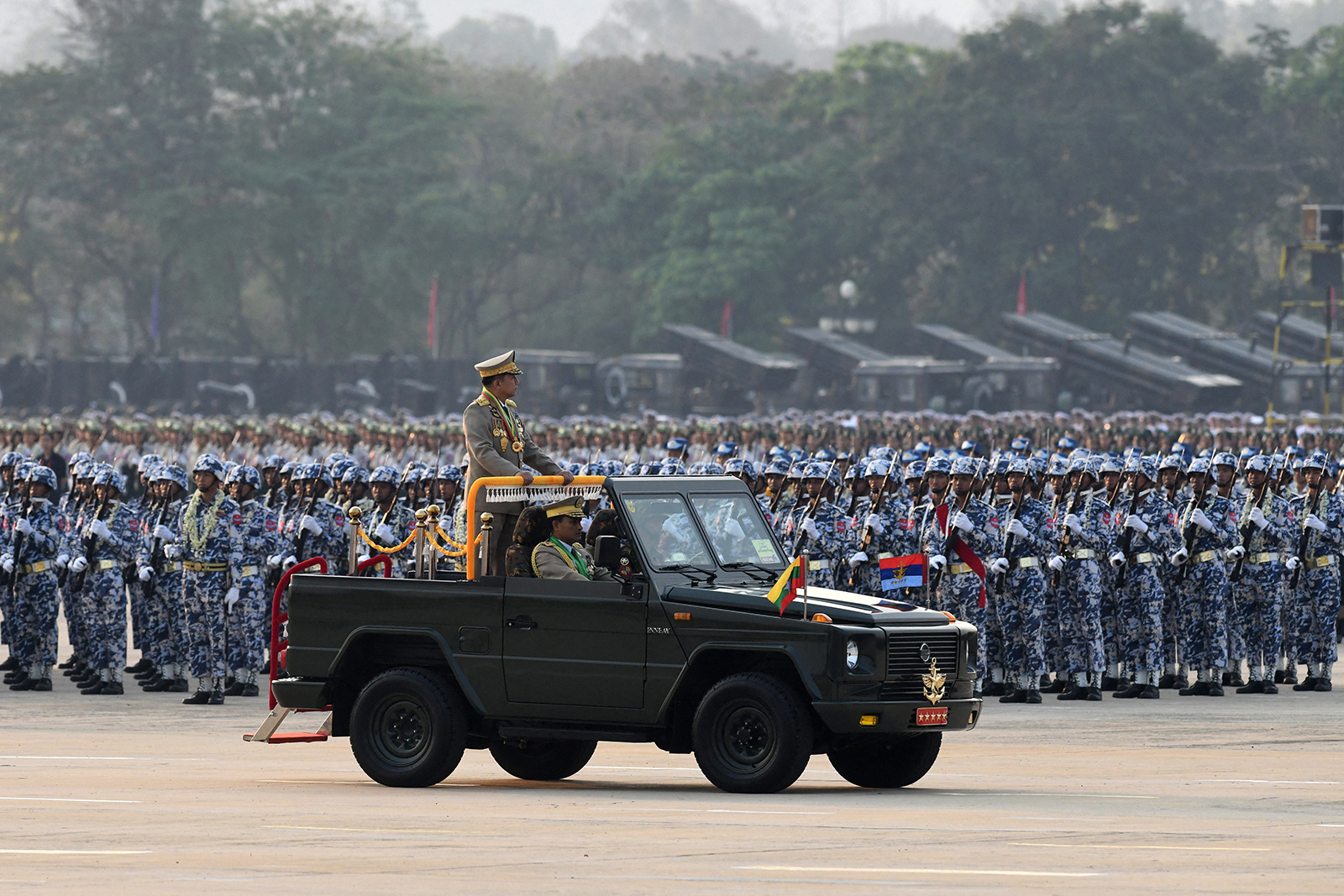There’s little public confidence in the integrity of the Myanmar Police Force, and it will not be easy to arrest the perceptions and criticisms that tarnish its image.
By SITHU AUNG MYINT | FRONTIER
THE MILITARY-RUN Ministry of Home Affairs is among the government departments that have been holding briefings for the media to explain their work and achievements during the second year of the National League for Democracy government.
At the event on May 15, senior Home Affairs officials spoke about the ministry’s efforts to ensure security for citizens and residents, and then invited questions from journalists. The journalists present weren’t much interested in statistics about fighting crime – their questions focused on recent incidents that have tarnished the image of the Myanmar Police Force.
They include allegations that the two Reuters journalists arrested last December and charged under the Official Secrets Act are victims of entrapment; the violent dispersal by police of a recent protest in Tarmwe Township in support of national peace; and the failure of the MPF to arrest the main suspect in the brazen daytime assassination of prominent lawyer U Ko Ni nearly 16 months ago.
How did MPF chief Police Brigadier-General Aung Win Oo respond to the journalists’ questions? Will his answers help to restore declining public confidence in the MPF?
Support more independent journalism like this. Sign up to be a Frontier member.
Testimony at the pre-trial hearings of the Reuters reporters has cast a shadow over the integrity of the MPF. The journalists have been in custody since their arrest on December 12 for allegedly possessing documents about security operations in Rakhine State. They face up to 14 years in prison if convicted under the Official Secrets Act.
In a dramatic revelation, prosecution witness Police Major Moe Yan Naing has testified that Police Brigadier-General Tin Ko Ko ordered officers to set a trap for the reporters. An attempt by the prosecution to have Moe Yan Naing declared a hostile witness was rejected by the judge and the officer has elaborated on his testimony in a subsequent hearing. Moe Yan Naing has since been given a prison sentence for violating the Police Discipline Act and a day after his initial testimony alleging entrapment his family was evicted from police housing.
At the news conference, Aung Win Oo strongly denied that either the MPF or Tin Ko Ko had been involved in entrapment. “I want to say quite clearly that Police Brigadier-General Tin Ko Ko did not order Moe Yan Naing to entrap or arrest anyone,” the police chief said.
However, the police chief’s response has failed to erase suspicions about the handling of the case. This is because of testimony by Moe Yan Naing that Tin Ko Ko ordered another officer to give documents to the reporters immediately before their arrest.
Regarding the heavy-handed behaviour by police in breaking up a protest in Tarmwe on May 12, Aung Win Oo said organisers had breached the Peaceful Assembly and Procession Law by failing to seek advance permission for the demonstration.
He insisted that civilians had not been involved in dispersing and arresting protesters, despite images circulated on social media showing men in plain clothes assisting in the forceful dispersal of demonstrators. However, he promised to investigate allegations that vigilantes supported the police.
The way the MPF handled the protest further damaged its image. The demonstrators had begun to disperse, at the request of the police, when officers suddenly rushed the crowd and began making arrests. The incident has only reinforced the low opinions about the conduct and performance of the MPF.
There is a widely held perception that the MPF is more focused on serving the interests of the Tatmadaw than in maintaining law and order. A probable reason for the harsh suppression of the Tarmwe protest was that in calling for an end to conflict, it implied criticism of the Tatmadaw.
The MPF had a worse reputation when Lieutenant-General Ko Ko was Home Affairs Minister in the Union Solidarity and Development Party government from 2011 to 2016. During his term, communal violence erupted in Rakhine State and spread throughout the country, leaving scores dead and thousands of homes torched.
Demonstrations were suppressed with greater brutality than seen in Tarmwe recently, and often with the assistance of thugs from the Swan Ar Shin (“Masters of Force”) vigilante force, many of whom were former criminals.
The situation has improved since Lieutenant-General Kyaw Swe became Minister for Home Affairs under the NLD government in March 2016.
However, the alleged entrapment of the Reuters reporters, the daylight killing of Ko Ni and failure to arrest the key suspect in his assassination, and the use of force against anti-war protesters who were already dispersing, has badly damaged public confidence in the integrity of the MPF.


